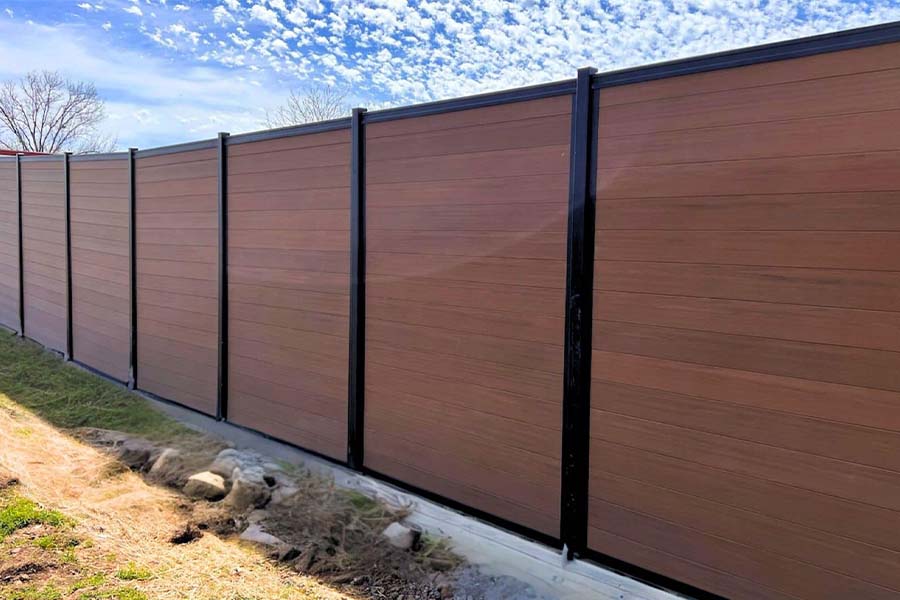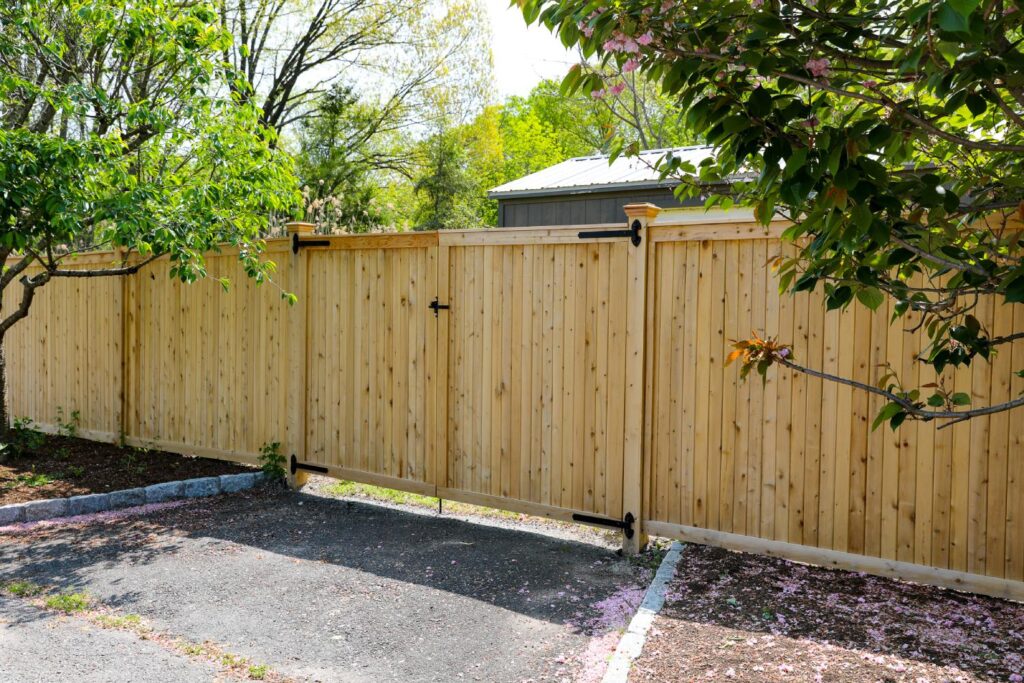All Categories
Featured
Installing a fence around your residential property is a considerable financial investment that requires proper planning and prep work to guarantee a smooth process. Whether you're adding a fence for safety, privacy, or visual appeal, taking the necessary actions before installment can assist prevent issues down the line. Here's a guide on how to prepare your residential property for fencing installation and make certain whatever goes according to strategy.
![]()
![]()
![]()
Final thought. Appropriate prep work is vital to an effective fencing installment. By putting in the time to identify your residential property lines, clear the installation area, look for underground utilities, and interact with your neighbors, you can make sure that the procedure goes smoothly and prevent unforeseen problems. With the right prep work, your new fencing will certainly not just enhance your building's look yet additionally provide the security and personal privacy you require.
- Know Your Residential Or Commercial Property Limits. The first action in preparing your residential or commercial property for fencing setup is determining your building lines. It's vital to understand where your boundaries are to stay clear of installing the fence as well close to your neighbor's residential or commercial property or even on their land.

- Understand Local Rules and Permits. Different areas have various rules pertaining to fence height, products, and placement. Be certain to stick to all regional policies to prevent penalties or having to take the fencing down after installment.
- Clear the Fence Line. You'll require to remove the area when you've figured out where the fence will certainly go. Get rid of any kind of plant life, trees, rocks, or debris that may obstruct the fencing installment procedure. Think about cutting or eliminating them to make the location a lot more available if there are disordered plants. Cleaning the area ensures that the fencing setup can continue without hold-ups and assists to prevent damage to plants you might wish to keep. If the fence line is on unequal or sloped ground, consider whether any type of grading or progressing is called for.
- Mark Underground Utilities. Get in touch with your local energy firms to ensure that no below ground energies will interfere with your fencing setup. This step will help avoid accidents and delays during the installation process.
- Discuss with Neighbors. Setting up a fencing on a common home line or near a neighbor's building calls for open communication to avoid problems. It's an excellent idea to inform your neighbors concerning your fencing plans in advance of time. Go over the fencing's location, elevation, layout, and products, particularly if the fence will get on or near a boundary line. Having a friendly conversation can aid avoid disputes or misunderstandings later on and might also cause a better layout that helps both events.

- Choose the Right Fencing Kind and Product. Picking the appropriate type and product for your fence is an essential step in preparing for installment. Think about variables like the function of the fence (personal privacy, safety, aesthetic appeals), neighborhood climate conditions, and the quantity of maintenance you're prepared to do.
- Set a Realistic Budget. If you're employing experts to set up the fence, ask for price quotes from numerous contractors to ensure you're obtaining a reasonable cost. Variable in the long-term upkeep expenses of the fencing to guarantee that the kind of fencing you select fits within your overall budget plan.

- Prepare for Installation Day. As installment day methods, ensure that your property awaits the work to start. Make certain the area is clear of personal items like garden designs, yard furniture, or exterior tools. Keep them safely away from the setup area if you have pets or young children. You must also make certain there is sufficient space for the contractors to park their vehicles and store tools during the task. By preparing the location for the team, you can help guarantee that the installment goes as efficiently and successfully as possible.
Final thought. Appropriate prep work is vital to an effective fencing installment. By putting in the time to identify your residential property lines, clear the installation area, look for underground utilities, and interact with your neighbors, you can make sure that the procedure goes smoothly and prevent unforeseen problems. With the right prep work, your new fencing will certainly not just enhance your building's look yet additionally provide the security and personal privacy you require.
Latest Posts
Uncover the Top Auto Repair Deals in Montclare, Chicago
Published May 25, 25
1 min read
Discover Brake Repair & More: Comprehensive Auto Care Solutions from Montclare Auto Repair
Published May 25, 25
1 min read
Explore Your Financial Partner at WyHy – Top Benefits for Your Financial Goals
Published May 23, 25
1 min read
More
Latest Posts
Uncover the Top Auto Repair Deals in Montclare, Chicago
Published May 25, 25
1 min read
Discover Brake Repair & More: Comprehensive Auto Care Solutions from Montclare Auto Repair
Published May 25, 25
1 min read
Explore Your Financial Partner at WyHy – Top Benefits for Your Financial Goals
Published May 23, 25
1 min read